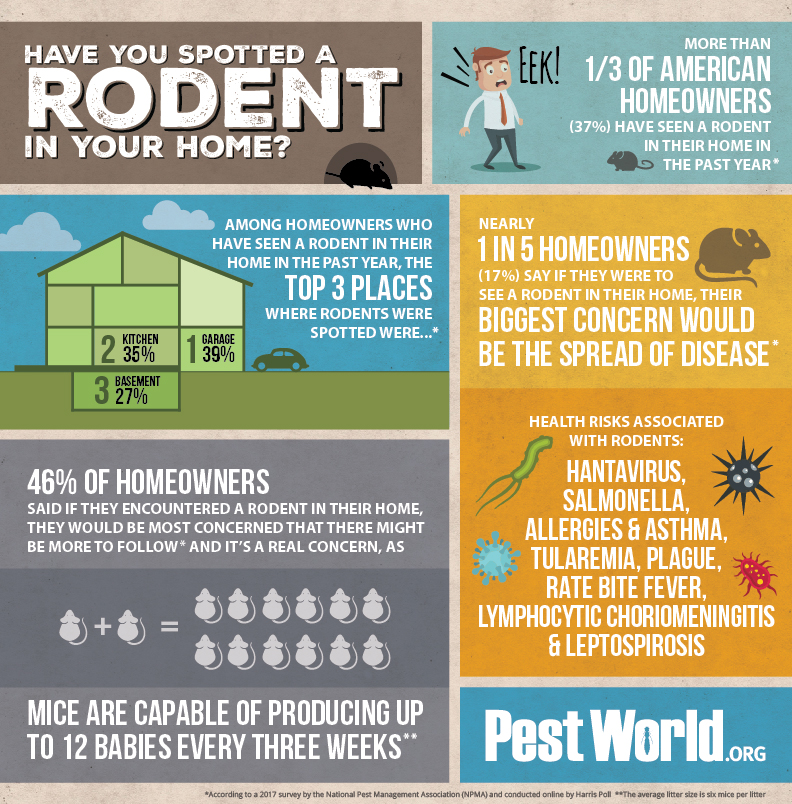Pest-Proofing Your Garden: Tips For Keeping Outdoor Parasites At Bay
Pest-Proofing Your Garden: Tips For Keeping Outdoor Parasites At Bay
Blog Article
Article Produced By-Thorpe Trujillo
Envision your garden as a refuge, a place of tranquility and beauty. Nevertheless, the existence of outside pests can quickly interrupt this ideal picture. What if there were basic yet reliable means to keep these undesirable site visitors away and secure your garden sanctuary? By complying with a couple of functional tips and implementing all-natural approaches, you can create a harmonious exterior room where your plants can prosper undisturbed.
Natural Parasite Deterrents
To keep parasites far from your yard naturally, plant fragrant herbs like mint and lavender. These great smelling plants not only include beauty to your yard yet also work as efficient insect deterrents. Bugs like mosquitoes, flies, and even some garden-damaging insects are driven away by the solid aromas sent out by these natural herbs. Simply placing them tactically around your yard can aid develop an all-natural barrier against undesirable bugs.
Along with mint and lavender, think about planting other natural herbs like rosemary, basil, and lemongrass to additionally boost your garden's pest-proofing abilities. These herbs not just work as natural repellents yet likewise have actually the added advantage of being useful in cooking or crafting homemade treatments.
Strategic Plant Placement
Think about the layout of your garden and the kinds of plants you need to strategically put them for optimum pest-proofing effectiveness.
Start by grouping plants with comparable resistance to bugs together. By doing this, you can produce an all-natural barrier that discourages bugs from spreading throughout your yard.
Additionally, placing pest-repelling plants like marigolds, lavender, or mint near even more at risk plants can assist shield them. High plants, such as sunflowers or corn, can work as a shield for shorter plants versus bugs like rabbits or ground-dwelling bugs.
Remember to leave https://felixqlfys.blogscribble.com/26641682/see-the-fight-in-between-a-historic-structure-and-hidden-termite-risk-as-experts-unveil-groundbreaking-approaches-to-maintain-its-legacy between plants to improve air circulation and reduce the risk of conditions that pests could carry.
Additionally, take into visit the following webpage planting strong-smelling herbs like rosemary or basil near vulnerable plants to confuse parasites' detects and make it harder for them to find their targets.
Effective Bug Control Techniques
For combating garden bugs properly, carrying out a multi-faceted bug control strategy is vital. Beginning by encouraging all-natural killers like birds, ladybugs, and praying mantises to assist keep parasite populaces in check. Introducing plants that attract these valuable bugs can assist in pest control. In addition, practicing good yard health by getting rid of debris and weeds where parasites could conceal can make your garden much less friendly to undesirable site visitors.
Consider utilizing physical obstacles such as row cover textiles or netting to safeguard vulnerable plants from insects like caterpillars and birds. Applying organic pesticides like neem oil or insecticidal soap can likewise work versus certain parasites while being less dangerous to advantageous pests and the atmosphere. It's important to revolve your plants each period to stop the buildup of pest populations that target particular plants.
On a regular basis inspect your plants for signs of bug damages so you can take action immediately. By incorporating these approaches and remaining attentive, you can effectively manage yard bugs and appreciate a growing, pest-free yard.
Verdict
So, there you have it - with the best methods, you can keep pesky outdoor bugs far from your garden and help your plants prosper.
Did you recognize that planting mint has been shown to drive away insects and other bugs, decreasing the demand for dangerous pesticides by up to 60%?
By including natural deterrents and wise growing methods, you can develop an attractive and pest-resistant garden oasis for you to delight in.
